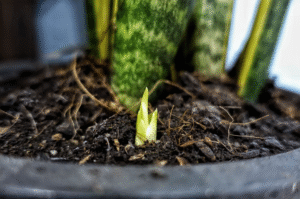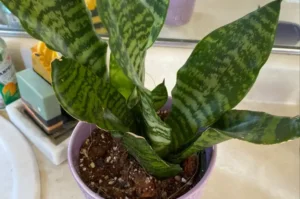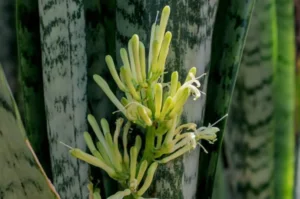Snake plants, also known as Sansevieria or Mother-in-law’s Tongue, are one of the toughest and longest-living indoor plants. Their ability to thrive on neglect and tolerate low light makes them perfect for beginners and busy plant lovers. But one common question plant owners ask is: how long do snake plants live?
Let’s dive into the lifespan of snake plants and how you can help them live a long, healthy life.
Average Lifespan of Snake Plants
On average, snake plants can live between 5 to 25 years, depending on how well you care for them. Some snake plants have even been known to survive beyond 25 years in ideal conditions.
Their long life is due to their strong and slow-growing nature. With minimal care, they can outlive many other houseplants.
Factors That Affect the Lifespan of Snake Plants
Several things can affect how long your snake plant lives. Let’s look at the main factors.
1. Watering
Snake plants are sensitive to overwatering. Too much water can cause root rot, which is the most common reason for early death.
Tip: Water only when the soil is completely dry — usually every 2 to 3 weeks.
2. Light Conditions
Snake plants are low-light tolerant, but they do best in indirect sunlight. Bright, filtered light helps them grow better and stay healthier for longer.
Tip: Keep your plant near a window with indirect light for the best results.
3. Soil and Drainage
Using the wrong soil can cause water to sit around the roots. Snake plants need well-draining soil to avoid rot.
Tip: Use cactus or succulent mix, and make sure your pot has drainage holes.
4. Temperature and Humidity
Snake plants like temperatures between 60–85°F (15–29°C). They don’t like cold drafts or extreme heat.
Tip: Keep them away from heaters and cold windows during winter.
5. Pests and Diseases
Although snake plants are hardy, they can still get pests like mealybugs or spider mites. Also, poor air circulation and overwatering can cause fungal issues.
Tip: Clean the leaves often and check for bugs. Use neem oil or mild insecticidal soap if needed.
How to Help Your Snake Plant Live Longer
Here are some simple things you can do to help your snake plant live a longer, healthier life:
- Don’t overwater – let the soil dry out fully.
- Place it in indirect sunlight.
- Use well-draining soil.
- Repot every 2–3 years to refresh the soil and give the roots more room.
- Clean the leaves with a damp cloth to remove dust and let them breathe.
- Avoid sudden changes in temperature.
How Do You Know If Your Snake Plant Is Dying?
Here are some signs that your snake plant might be in trouble:
- Yellowing or mushy leaves – likely overwatering.
- Brown, crispy leaf tips – low humidity or underwatering.
- Soft, smelly roots – root rot.
- Drooping leaves – poor lighting or incorrect watering.
If you notice any of these symptoms, act fast. Most problems can be fixed if caught early.
Frequently Asked Questions (FAQs):
Can a snake plant live forever?
No plant lives forever, but snake plants can live over 20 years with proper care.
Do snake plants die easily?
Not at all. Snake plants are very tough and only die if they are badly overwatered or exposed to extreme conditions.
Can a snake plant survive without sunlight?
Snake plants can survive in low light but will grow slower. They need at least some indirect light to stay healthy.
How do I know if my snake plant is healthy?
Healthy snake plants have firm, upright green leaves with no soft spots or discoloration.
Should I cut dead leaves off my snake plant?
Yes. Remove dead or yellow leaves with clean scissors to help the plant focus its energy on new growth.
Conclusion
Snake plants are not just easy to care for, they’re also long-lasting. With the right care, your snake plant can be a green companion for many years, even decades. Just remember the golden rules: don’t overwater, give it some light, and use the right soil. Whether you’re a plant expert or a beginner, the snake plant is a perfect addition to your home.






